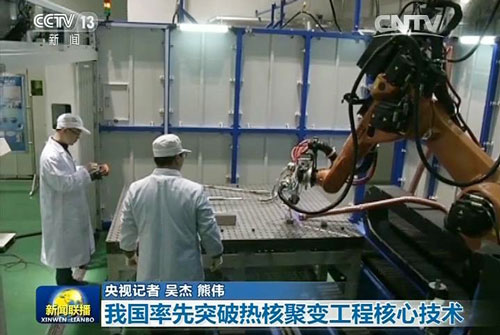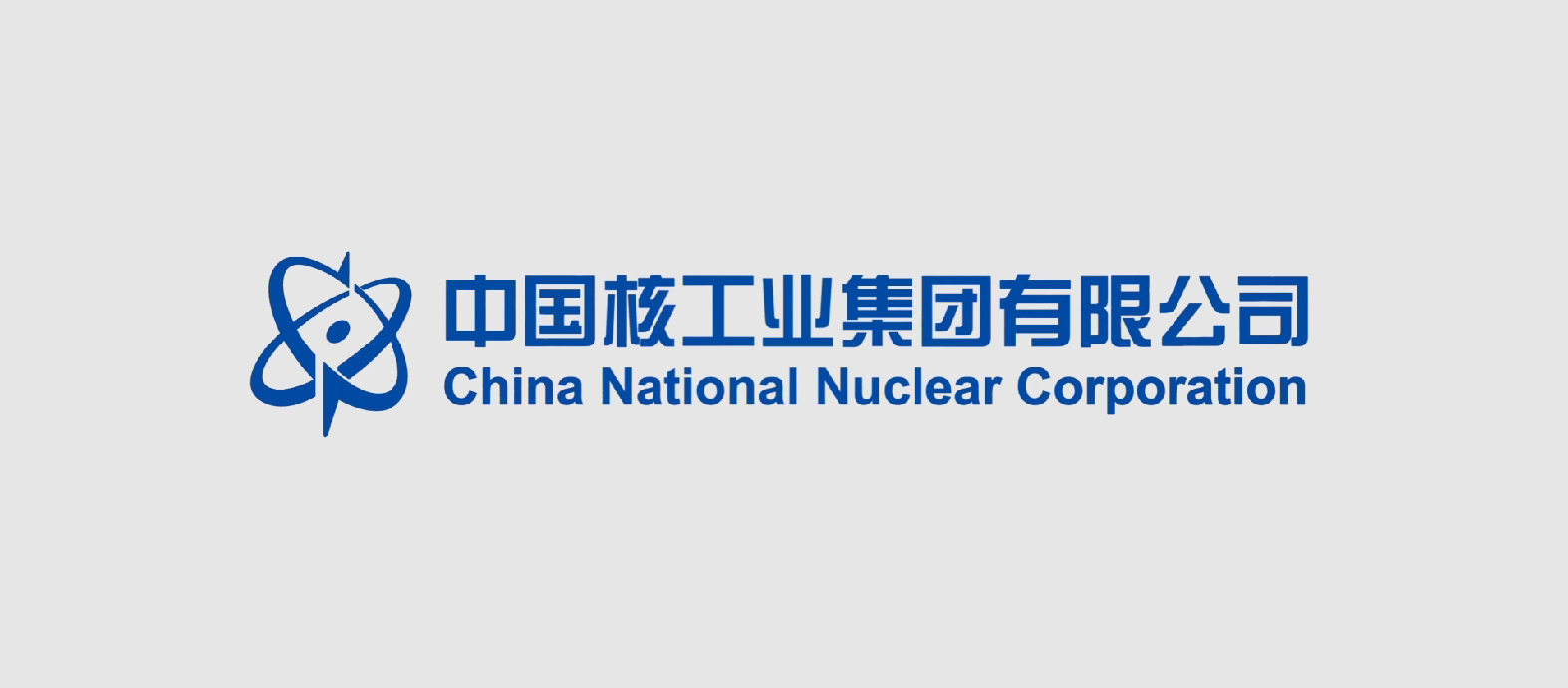CNNC makes a breakthrough in ITER core tech

Technicians monitor a robotic arm as it prepares materials for the International Thermonuclear Experimental Reactor (ITER) project. [Photo/CNTV]
The super thermal load first wall prototype, a core assembly in the International Thermonuclear Experimental Reactor (ITER) project, was independently researched and manufactured by the Southwestern Institute of Physics attached to China National Nuclear Corporation (CNNC) and has recently passed the authentication of international institutes with ingenuity. It marks a vital Chinese contribution to the international thermonuclear fusion project.
The Southwestern Institute of Physics completed the independent research and manufacturing of the assembly, which will advance the self-construction of fusion reactors in the future.
As a brand new energy form, nuclear fusion may be able to solve the energy issues of humans in the future. Thus, scientists and researchers from over thirty countries, including China, have started the world’s largest scientific collaboration project—the International Thermonuclear Experimental Reactor.
The International Thermonuclear Experimental Reactor, abbreviated as ITER, is now one of the world’s largest and most influential international cooperation projects for science and research, aiming to realize a controllable nuclear fusion reaction.
The project is reputed as an “Artificial Sun” mainly because the theory of generating energy is similar to the Sun’s emission of light and heat. However, to build the core of the “Artificial Sun”, special materials are in demand to fix a “firewall” in order to prevent a hyper-thermo atmosphere near the core.
Many countries have been developing the hyper-thermo core materials during the process of the ITER project, while the material undertaken and studied by Chinese scientists is located at the most intense part, the area that directly faces the high-heat fusion substances, and is thus being called “the first wall” of nuclear reactors.
According to the ITER’s design requirements, “the first wall” should bear a heat measuring at 4.7 megawatts per square meter, which is so hot that a one kilogram piece of steel would melt in one second.


